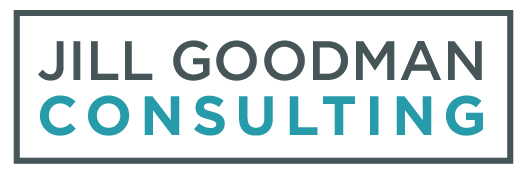Can You Handle the Truth?
In the climactic courtroom scene of the 1992 film A Few Good Men, Lt. Daniel Kaffee, played by Tom Cruise, yells at Col. Nathan Jessup, played by Jack Nicholson, and demands to know the truth. Col. Jessup bellows back, "You can't handle the truth!"
Not many of us want to know the truth about our leadership style. The truth can be murky. Leaders make difficult decisions that often have competing priorities. We should seek the reason for low morale at our organization, reflect on how we handled a recent crisis, or evaluate the perceived attention we pay to our customers or clients. But, the truth is hard to solicit and harder to hear. We would much rather be applauded for our bravery and brilliance than consider what went wrong.
When leaders become aware of problems that could begin an existential crisis, it is time to bring some outside perspective. Issues like a concerning drop in enrollment in students at an independent school, a high rate of attrition among donors to a nonprofit, or high staff turnover are a few such problems that warrant further investigation. Data and exploration are vital to understanding the root of such issues.
I recently delivered a comprehensive report from an Insight Study conducted for a client, including data collected from over 80 individual interviews and focus group participants. The study aimed to explore the reasons for donor and client dissatisfaction. In my work, I frame research to discover how people emotionally connect to the organization. I heard people tell of many beautiful aspects of the organization that attracted and retained donors and clients and created a loyalty and commitment culture. I also heard plenty of wishes for improvement. Some of those wishes were flat-out, non-sugar-coated criticism. The kind of criticism that can feel defeating and harsh to both deliver and receive.
The organization's leadership understood that issues needed to be addressed. They required the research I could provide to help them make complex changes in culture and program delivery.
After his long day of meetings, the executive director called me and told me that he appreciated the report and knew that this information was vital to move toward sustainability. It also made him sad to hear criticism from his community, the one that he had dedicated his life to serving. It felt personal, and he feared how the report would land with his administrative team and board of trustees.
As I listened, I could hear the inner struggle in his voice. I reminded him that it was necessary to remember that every community member who participated in this study did so because they cared deeply about the organization's success. They passionately cared about its existence and its place in the future. They wanted it to be there for their children and grandchildren in the best possible version of itself. Each response, positive or negative, was based on love, and sometimes, we reserve the harshest criticism for those we love the most.
There was a long pause. I waited. The executive director said, "I was too emotional to speak just then. Thank you for pointing that out, it helps."
In this case, criticism, or perhaps truth, results from an experience your donors or clients did not expect. There needed to be more alignment between what was promised and the lived experience with your organization. Someone in the organization exhibited behavior that was not in keeping with your organizational culture, core values, or beliefs. In essence, though in the extreme, this is what happened in the film A Few Good Men, and to varying degrees, happens when organizations start to lose their way.
Every time a client engages my services to do this work, I am honored. The truth can be painful. But together, we can handle the truth.
The author, Jill Goodman, is a consultant working with independent school leaders to advance their school’s mission, enhance their processes, and bolster their skills. Learn more about all services here.
Photo credit: nullGetty Images
A version of this blog was published in 2020



